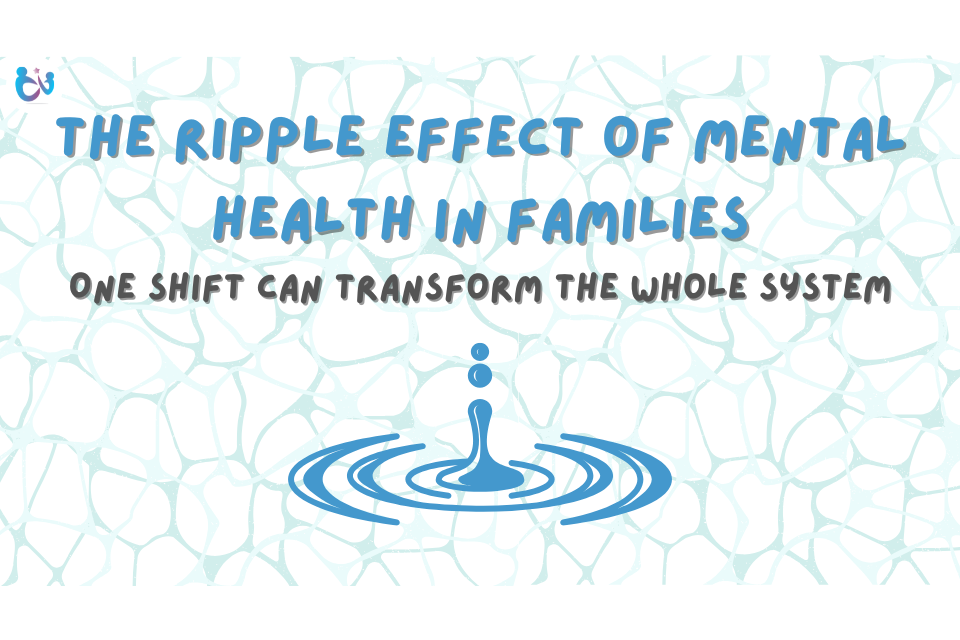The Ripple Effect of Mental Health in Families
June 13, 2025

When we speak of mental health, we often speak in singular terms—my anxiety, his depression, her trauma. But in truth, mental health rarely affects just one person. It sends ripples through families, shifting dynamics, influencing communication, and shaping how we experience safety, closeness, and love.
Emotional Atmospheres Are Contagious
We all know how a single person’s mood can change the energy in a room. A short temper, an anxious pace, or a withdrawn presence doesn’t just stay contained—it affects the entire family. Children may grow quiet. Partners may walk on eggshells. Emotional regulation—or dysregulation—becomes a shared experience. Over time, this creates an emotional atmosphere that either nurtures or suppresses emotional growth.
Mental health challenges, if left unaddressed, create silent rules in households. “Don’t upset Mom,” “Avoid Dad when he’s like that,” or “We don’t talk about those things here.” These emotional climates often dictate how safe or unsafe we feel expressing ourselves.
What We Don’t Heal, We May Repeat
Family patterns are powerful. Without realizing it, we often parent the way we were parented. If mental health wasn’t talked about in your childhood home, you might find it difficult to talk about it now—with your children, your partner, or even yourself.
Unspoken grief, suppressed anger, or trauma passed down through generations doesn’t disappear. It shows up in beliefs, behaviours, and emotional blind spots. The good news is, becoming aware of these patterns is the first step in changing them.
Family Roles: The Silent Shapers of Identity
In many families, we unconsciously fall into roles—the peacemaker, the achiever, the scapegoat, the caregiver. These roles are often shaped by emotional imbalance in the family system.
Perhaps one parent’s mental illness or emotional unavailability meant an older child had to grow up too fast. Maybe one sibling became the “problem” child to distract from deeper issues. These survival roles can quietly shape self-esteem, relationships, and even career choices long into adulthood.
Healing Is a Family Affair
The most powerful truth we can share with you today is this: healing is contagious too.
When one person in the family begins therapy, it creates space for others to explore their emotions too. When a parent learns to emotionally regulate, a child feels safer. When we name what’s been ignored or silenced, we take back power from shame.
You don’t need everyone to go to therapy. You just need one person brave enough to start. That person could be you.
You Don’t Have to Carry It Alone
Whether you are a parent, a partner, or a young adult trying to break old cycles, know this—healing is not about blame. It’s about building emotional safety and honesty, one step at a time.
We walk with families and individuals as they rewrite the stories they’ve inherited. You are not alone, and you don’t have to fix everything before you reach out.
